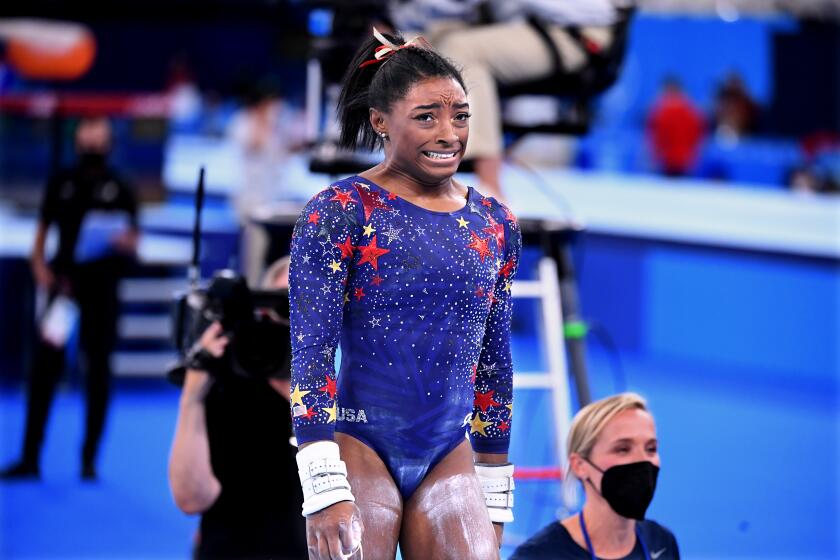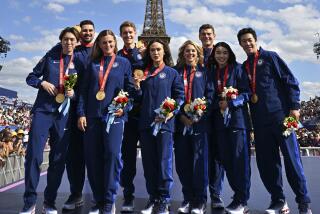Column: Russian win underscores how far behind U.S. is in men’s gymnastics
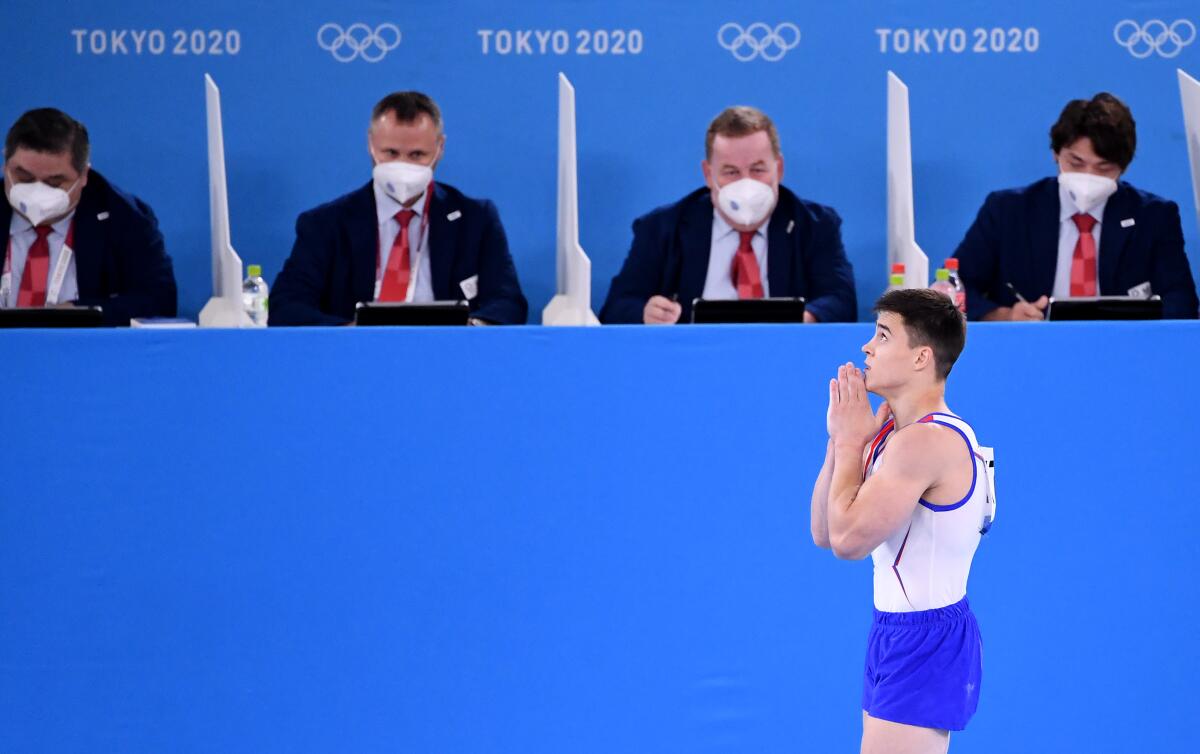
- Share via
TOKYO — With a gold medal at stake in the final rotation of the men’s gymnastics team competition, Nikita Nagornyy had the presence of mind to improvise during his floor exercise routine with the aim of gaining every tenth of a point for his team, which is known as the Russian Olympic Committee.
His success in cramming so many superb skills into his performance meant he was able to improvise again during the medal ceremony.
COVID regulations dictate that winners here must take their medal from a tray and slip the ribbon around their neck, but Nagornyy was so excited by his team’s surprise victory that he picked up the ribbon that held teammate Artur Dalaloyan’s gold medal and put it around Dalaloyan’s neck. Dalaloyan, competing astonishingly well three months after tearing an Achilles tendon in training, reciprocated for Nagornyy, continuing the precise and exceptional teamwork that had helped them prevail.
Boosted by Nagornyy’s performance, the Russian athletes edged past Japan to win gold for the first time since the 1996 Atlanta Olympics. The ROC finished with 262.500 points, squeezing past Japan (262.397) and China (261.894). The U.S. men dropped to fifth, behind the big three and Great Britain (255.760), finishing with 254.594 points.
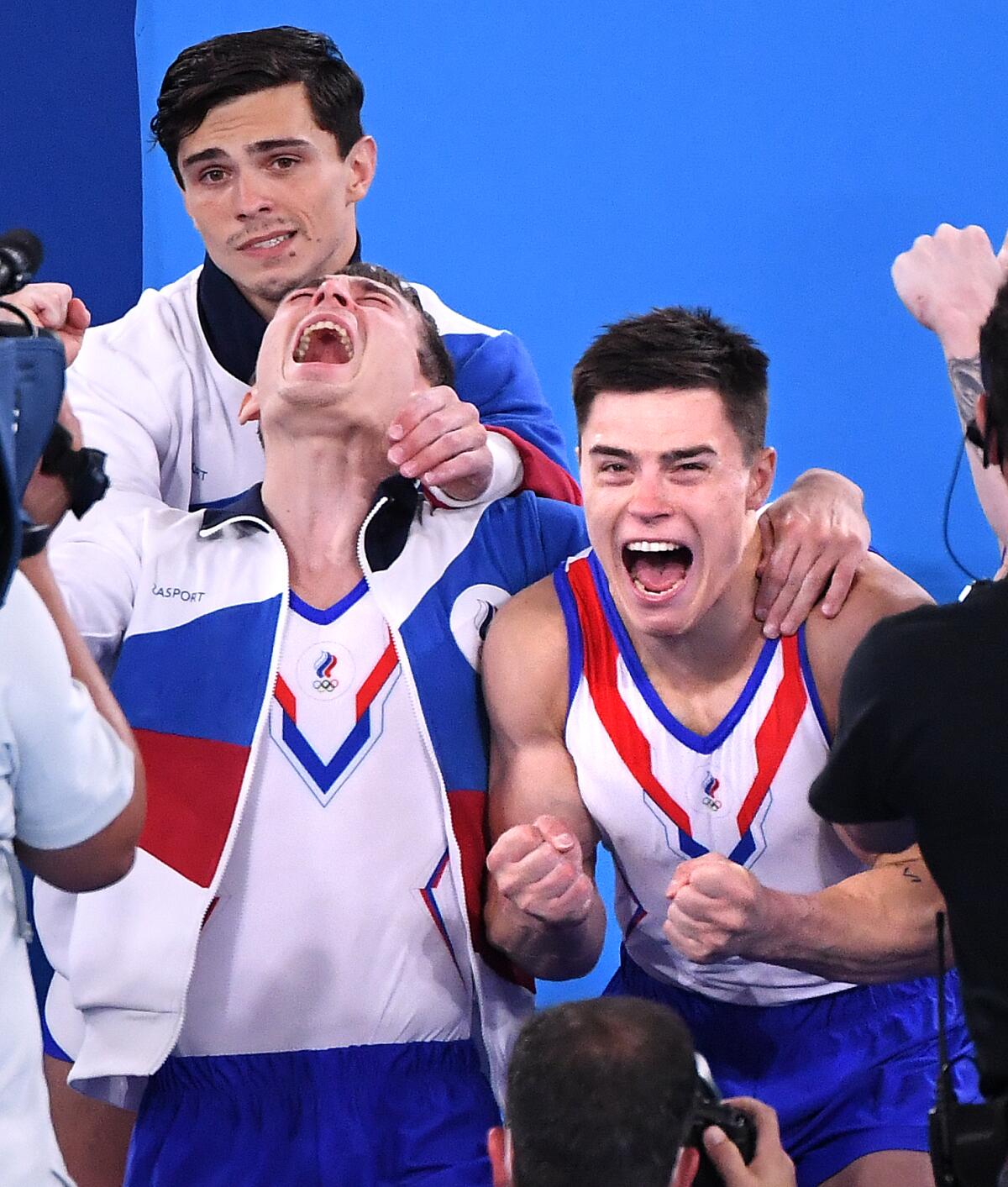
After ranking fourth in the qualifying round Saturday, the Americans knew that to have any chance at a medal Monday they’d have to be perfect and they’d need the top teams to stumble. Neither came true.
By the sixth and final rotation, Sam Mikulak’s legs were so tired that he could barely stay on his feet, and he almost sat after one tumbling pass. Until then, the Americans had performed cleanly — Newport Coast native Mikulak had acquitted himself well on the horizontal bar, and Yul Moldauer had led off with a fiery performance on the pommel horse — but none could match the intricate moves pulled off so routinely and brilliantly by the top three teams.
A U.S. women’s gymnastics squad that was considered head and shoulders above their rivals didn’t perform that way during Tokyo Olympics qualifying.
Gymnastics scores are based on difficulty and execution, and the Americans conceded too much on the difficulty scores. That’s a long-running theme for them. American men haven’t won a team medal since they earned bronze at Beijing in 2008, and they haven’t won gold since the 1984 Los Angeles Games, which were boycotted by many Eastern bloc countries.
“We knew there was no hope. We were rotating with Russia so it was hard to miss,” Mikulak said, referring to the American and Russian athletes being grouped together during Monday’s competition.
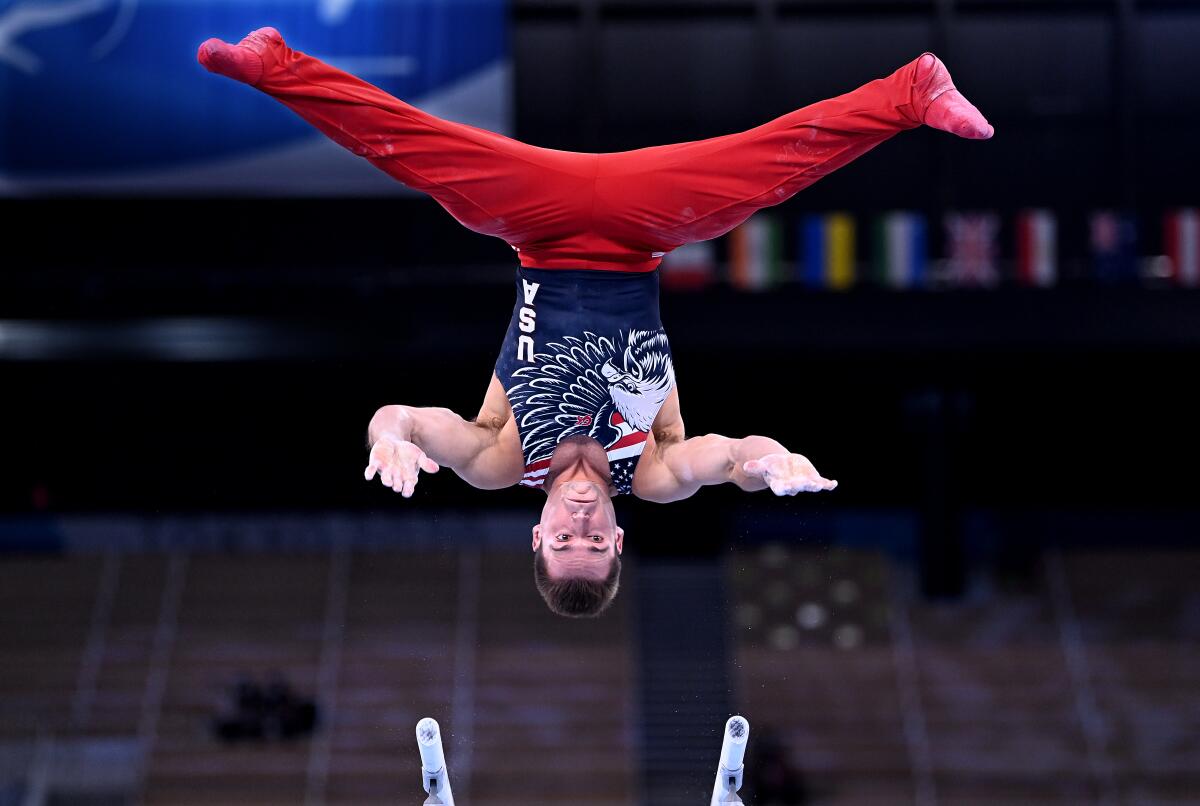
“We were doing everything we could. We went out there with a lot of fight, a lot of heart. We handled a lot of tough pressure situations. We were just keeping in a rhythm. We kept our bubble. We handled everything. We had each other’s back. We made an atmosphere that we could perform well in and no one else made any mistakes, so they didn’t really open the door for us to slide in there.”
Mikulak, in his third and last Olympics before he retires, said he expects rookie Olympians Yul Moldauer, Shane Wiskus and Brody Malone to benefit from their experiences in Tokyo. “I think these guys are going to rock out some start values. Coming into Paris, I know these guys are going to be cranking it out, trying to get up on that medal podium,” Mikulak said of the 2024 Summer Games.
To do that, they’ll have to increase the difficulty of their skills. By a lot. They also must become more aggressive about accepting mistakes in the interest of learning and polishing tougher moves.
“Playing it safe is not worth it in the long run. I’ve been guilty of this many times, taking skills out just for a clean-hit routine.”
— U.S. gymnast Shane Wiskus
That process is complicated by the fact that most elite gymnasts come to the national team through NCAA programs, which limit athletes’ training time and work against development of those necessary skills. Malone, who has two years left at Stanford, said he will talk with his coaches about when to enhance the difficulty of his routines and when he can simplify them during the busy college season.
But it’s clear that something must change for the U.S. men to become more competitive. “Playing it safe is not worth it in the long run. I’ve been guilty of this many times, taking skills out just for a clean-hit routine,” Wiskus said.
“You know, when it comes to advancing USA gymnastics and getting us on the medal podium, it’s not going to help us. We really need to think about our priorities and focus our energies on getting our difficulty up and making that the priority as opposed to hitting clean sets.”
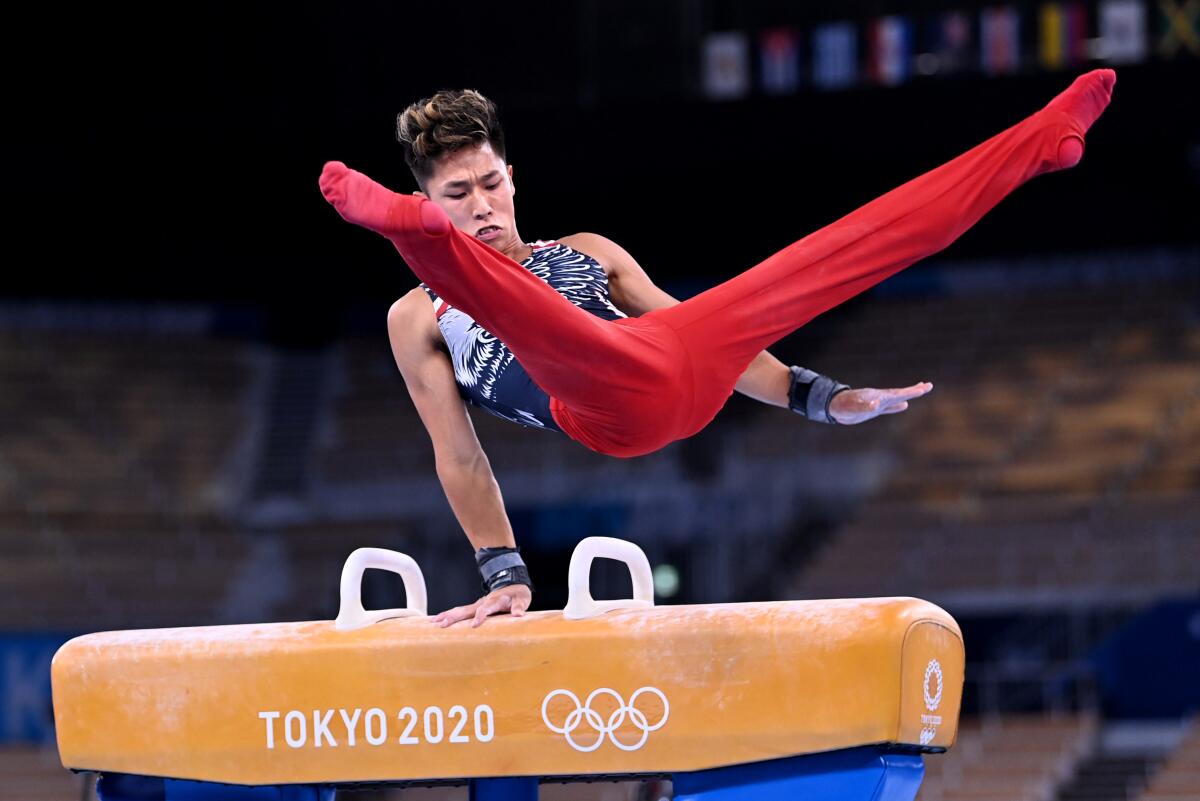
Mikulak agreed. “If there’s any message to all the other guys that are young and inspired by watching the Olympics, it’s to go out there and get all your difficulty right now. It’s kind of what Russia, China and Japan did. They just stacked their difficulty,” he said. “Over the years, you’re going to get more and more confident with those difficult routines.”
Wiskus’ Olympics are over, but other U.S. men still have chances to bring home individual medals. Malone and Mikulak will compete in the all-around final Wednesday, Moldauer qualified for the floor exercise final, Malone will be in the horizontal bar final and Mikulak will compete for a medal in the parallel bars final. Alec Yoder, who wasn’t a team member and won his Olympic berth as a plus-one event specialist, will vie for a medal on the pommel horse.
It’s unlikely Malone or Mikulak will win a medal in the all-around, but the American men are at least to the point where they know they must change their skill levels and their way of thinking. The work starts now.
More to Read
Go beyond the scoreboard
Get the latest on L.A.'s teams in the daily Sports Report newsletter.
You may occasionally receive promotional content from the Los Angeles Times.

